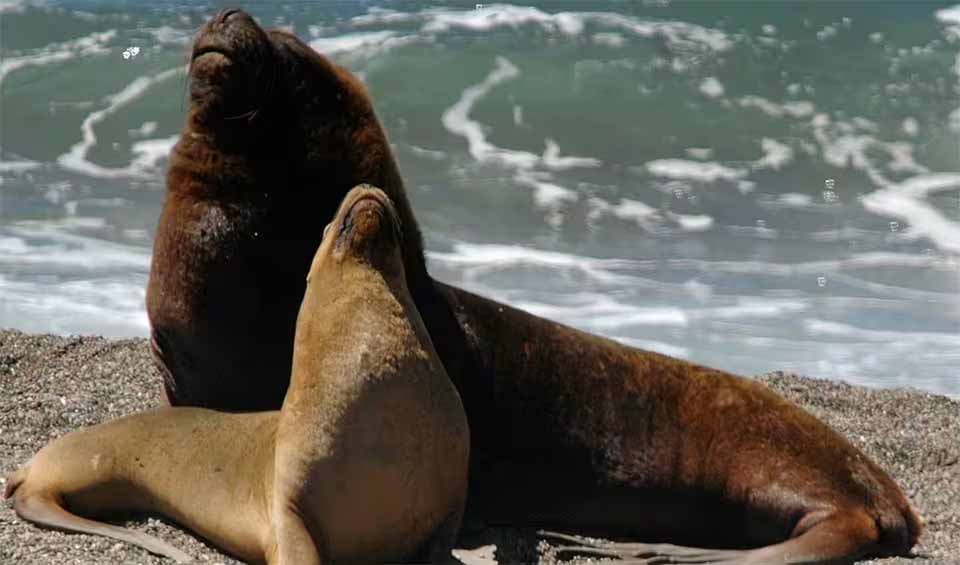Otaria – South American sea lion
Unfortunately, they are commonly killed for their habits of damaging fishing nets and stealing fish from fishing and farming operations
The South American Sea Lion, often called the Patagonian Sea Lion, stands as a remarkable marine mammal found along the coasts of South America, from Peru in the north down to the southernmost tip of the continent. This species exhibits significant sexual dimorphism, with males showcasing a robust, muscular build, a distinctive mane in a lighter shade than their dark brown pelage, and an imposing presence compared to the smaller, more slender females with yellowish coats.
From birth, South American Sea Lion pups present a unique greyish-orange coloration on their upperside, contrasting with their black underside. This fur begins to change to the adult coloration about a month after birth, marking its first step towards maturity. Adult males can reach impressive lengths and weights, significantly larger than their female counterparts, underscoring the differences between the sexes in this species.
South American Sea Lions are adept hunters, preferring the shallow waters less than 8 kilometers (5 miles) offshore for their foraging expeditions. They often hunt in groups, employing cooperative strategies to corral schools of fish, their primary prey. Besides fish, their diet encompasses a variety of marine invertebrates, including crustaceans and cephalopods, highlighting their role as top predators in their marine ecosystems.
Despite their adaptability and prowess as marine hunters, the South American Sea Lion faces numerous threats that have led to its classification as one of the most threatened sea lion species globally. The challenges they encounter include commercial fishery bycatch, which inadvertently captures sea lions in fishing gear, leading to injury or death. Additionally, competition for food resources, diseases, subsistence hunting, and commercial sealing have contributed to declines in their populations.
Species in this genus
South American sea lion
Unfortunately, they are commonly killed for their habits of damaging fishing nets and stealing fish from fishing and farming operations


